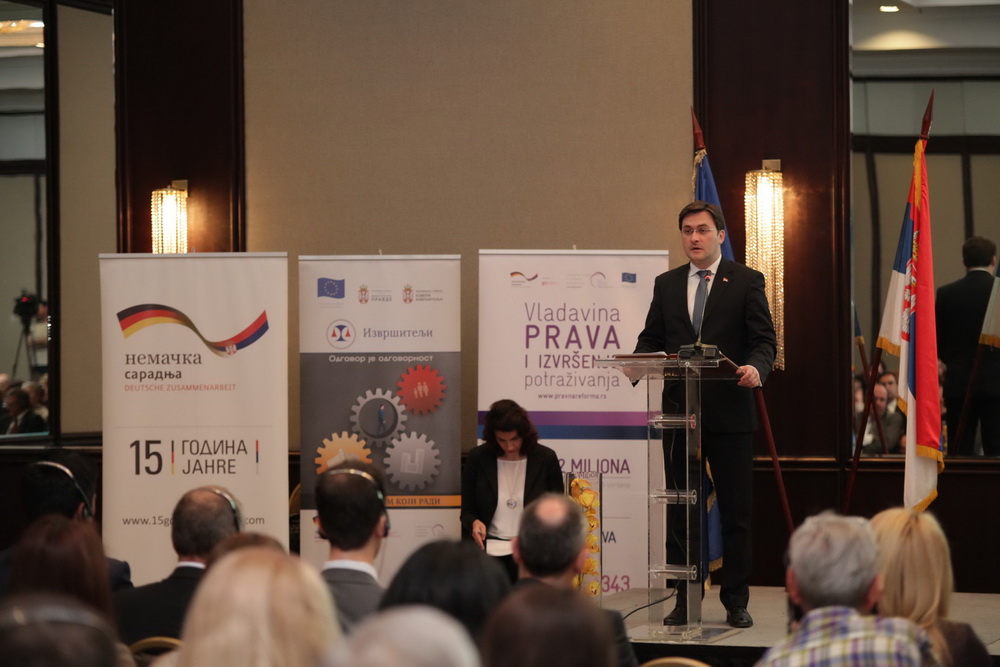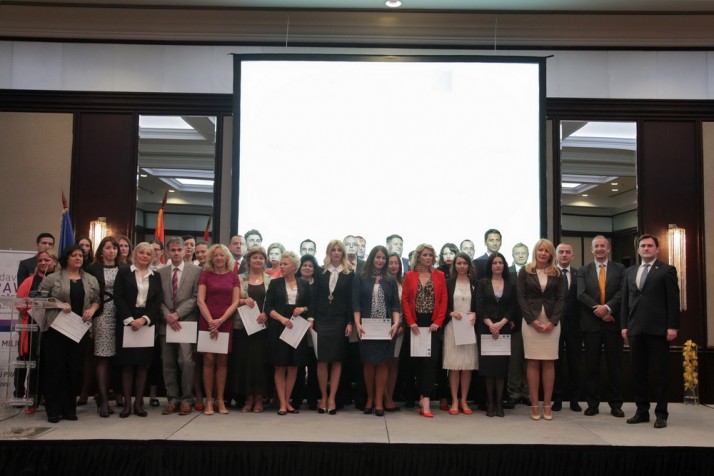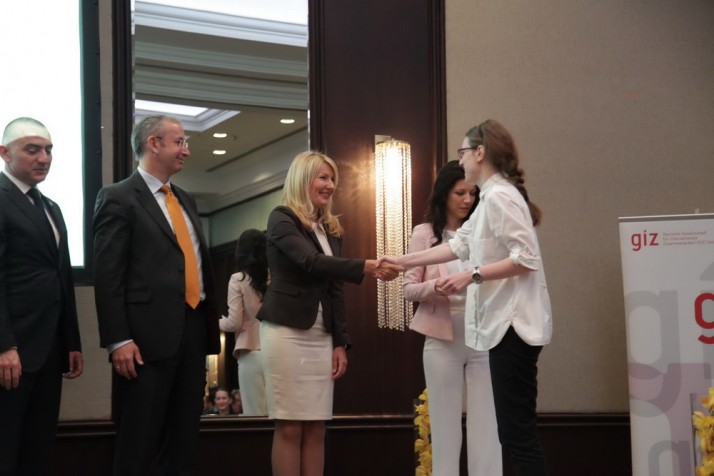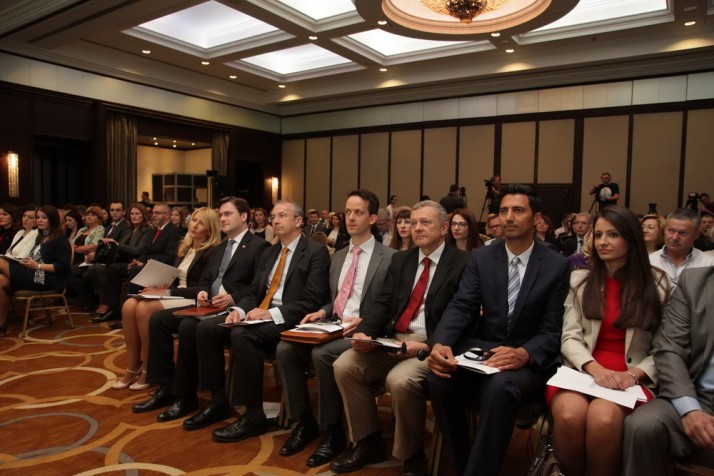The EU Project “Rule of Law and Enforcement“, the implementation of which has, since 2013, significantly improved the field of enforcement, was officially finalised at a conference organised by the Chamber of Enforcement Agents, the Ministry of Justice, the EU Delegation to Serbia and the German International Cooperation Agency-GIZ
In addition to Nikola Selakovic-the Justice Minister, the conference was attended by Aleksandra Tresnjev- the President of Public Enforcement Agents Chambers and GIZ representatives, Michael Davenport- the Head of EU Delegation to Serbia, Alexander Jung – deputy Head of Mission (German Embassy in Serbia), judges, international experts and members of the Chamber of Enforcement Agents.
The moderators pointed out to the positive results of the Project and the importance of the enforcement system reform in Serbia.
Aleksandra Tresnjev- the President of Public Enforcement Agents Chambers shared data on the analysis of 250 enforcement agents’ work, which showed that: during 2012 - 2015 period and of the total number of files received on the basis of all types of documentation used for enforcement, public enforcement agents had closed 61.16% of the files received in 2012 and 52.90% of the files received in 2013. In 2015, 205 enforcement agents closed 318,000 files on the basis of all types of documentation used for enforcement, while 225,016 files were closed during the three-year period of 2012-2014. As she pointed out, the enforcement agents were able to increase the number of finalised cases by 41.34% in a single year, in comparison with the total number of files closed in the three years prior.
Michael Davenport- the Head of EU Delegation to Serbia stated that, with its choice to follow the direction of joining the EU, Serbia had chosen to respect the basic principles on which the EU rested. One of those principles was the rule of law which implied the respect for fundamental rights and freedoms and which could not exist without a functional judicial system. With such goal, Serbia had chosen to incorporate the enforcement system reform into its strategic documents, a system which was crucial to an unimpeded enjoyment of rights. The EU had recognised this as one of the keys to [Serbia’s] progress in the EU integration process, for which reason it had [given Serbia] 1.6 million euros in support through the RoLE Project. With this Project, the enforcement system reform was systematically supported, which led to statutes being improved, efforts being made to ensure a consistent application of the new laws and efforts being made to have citizens familiarised with the amendments and advantages brought by the new laws.
Alexander Jung – deputy Head of Mission (German Embassy in Serbia) said that Germany’s support to Serbia since 2000 in its processes of reform and of joining the EU had been through German development assistance in terms of technical and financial support, in the total amount of 1.6 billion euros. He expressed his pleasure that GIZ had been selected to implement the RoLE Project, financed by the European Commission, and that it had been recognised as partner with many years of experience around the world in the good governance sector reforms. He thanked all [Project] partners and the rest of the Project implementation participants, and congratulated them on the achieved results, expressing hope that the new statutory amendments in the enforcement field would contribute to Serbia’s enforcement system’s efficacy.
Nikola Selakovic-the Justice Minister reminded everyone present that the new Enforcement and Security Act (ESA) was expanding the competencies of the enforcement agents, greatly entrusting them. The reason for this [expansion] was to reduce the number of court files and ensure a more efficient enforcement. Selakovic added that the new ESA included [requirements for] additional qualifications and training of the enforcement agents. He explained that the expansion of agents’ competencies inevitably entailed more accountability for them.
Certificates were awarded to the enforcement agents, judges and representatives of the Minustry of Justice who had successfully completed their trainers training. The certificates confirmed their ability to hold trainings in various areas significant for the performance of public enforcement duties.
Françoise Andrieux- the President of the International Union of Judicial Officers elaborated on the importance of Serbia’s membership in the Union (IUJO/UIHJ); Serbia having a leading role in drafting a solution to enforcement-related matters, as it had had a notable influence on the legislation of the Union’s members. Further, she explained that there was a need to harmonise enforcement standards due to the necessity of applying enforcement laws around the world.
Nela Kuburovic - Assistant to the Justice Minister, Predrag Trifunovic – President of the Civil Case Department of the Supreme Court of Cassation and Aleksandra Tresnjev- the President of Public Enforcement Agents Chambers spoke about the new legal framework and the planning of a system for claims collection in enforcement cases.
The “Rule of Law and Enforcement” Project representatives shared the results of the 33-month Project, which referred to the contribution to the changes to the legislative framework, the Public Enforcement Agents Chambers’ capacity building and the training of enforcement agents, and the raising of public awareness of the new enforcement system and the agents’ role.








